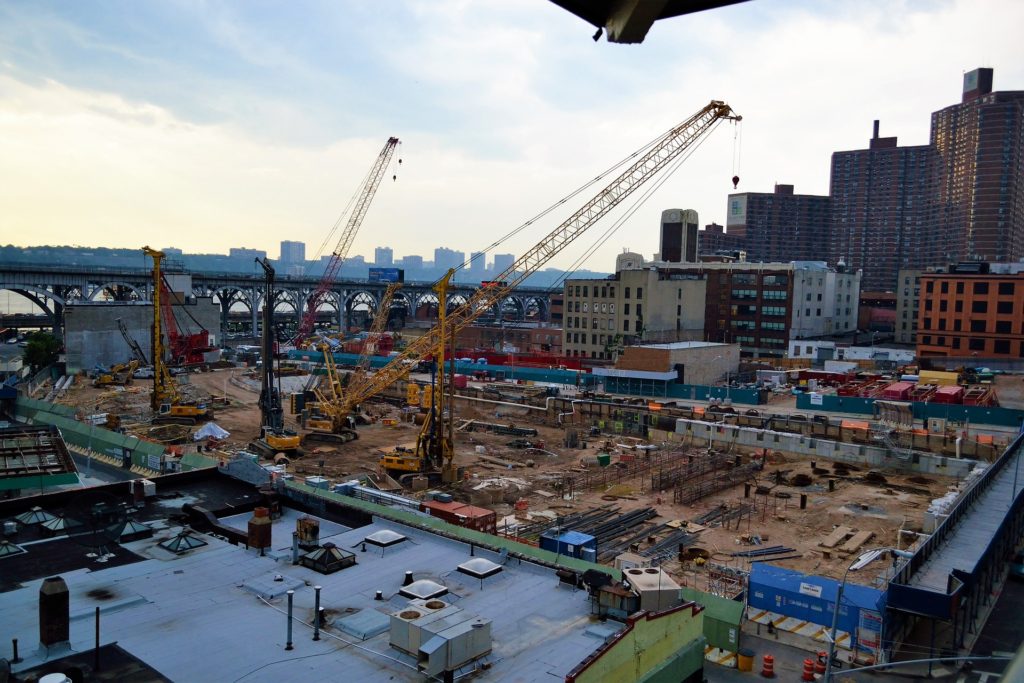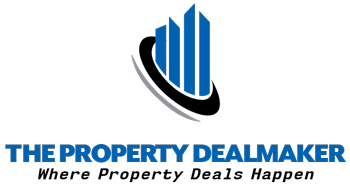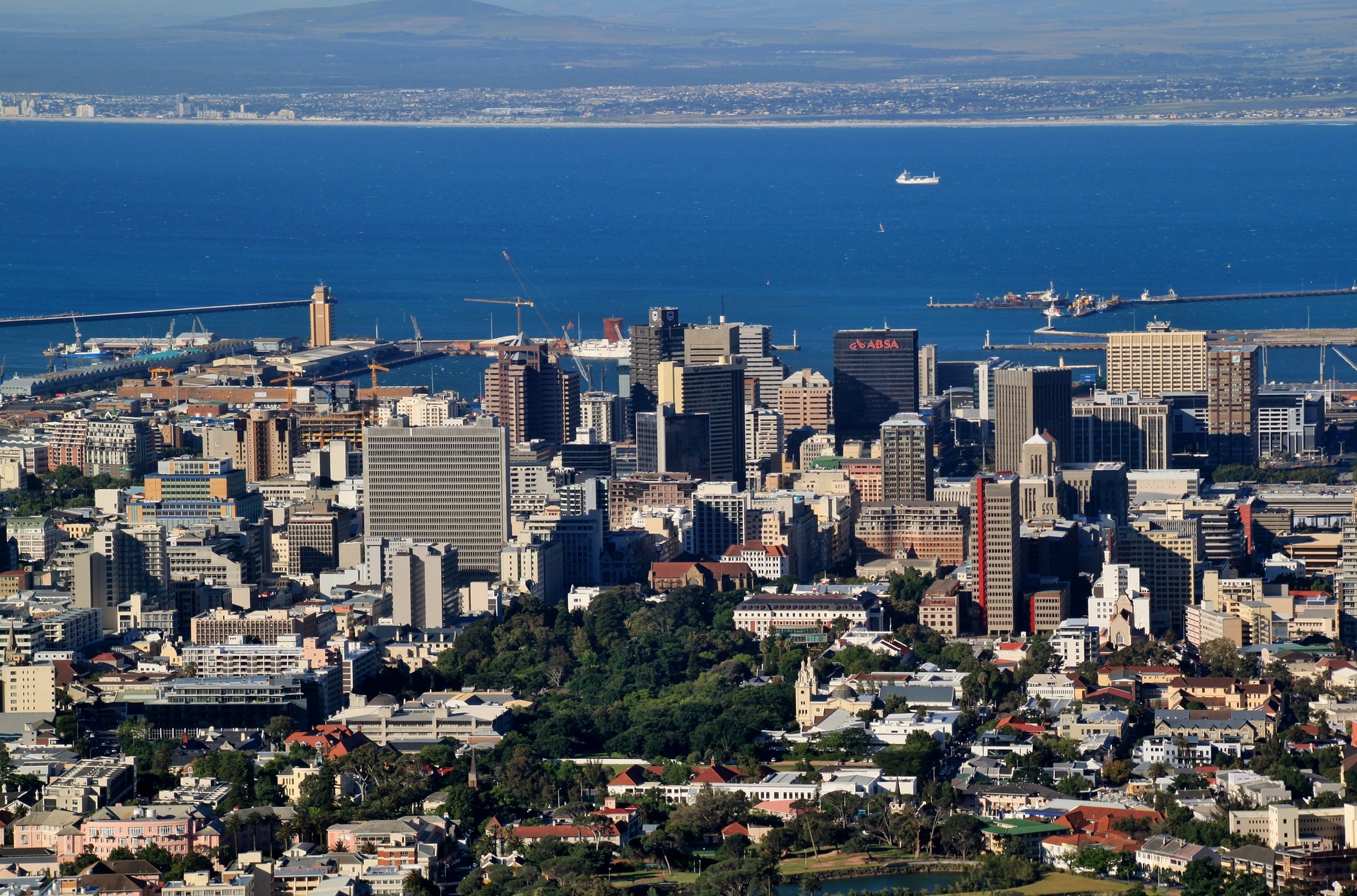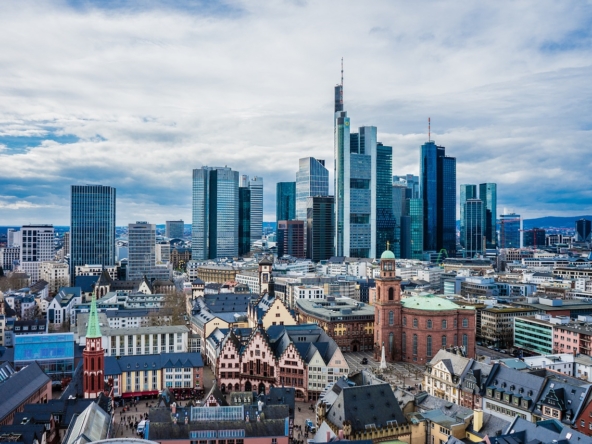In South Africa, rezoning refers to the process of changing the land use rights of a specific property. This process is governed by the Municipal Planning By-law and the Spatial Planning and Land Use Management Act (SPLUMA), which provide guidelines and regulations for local municipalities to follow.
The rezoning process is necessary when an owner wants to use their land for a purpose other than what it is currently zoned for, such as changing an agricultural property to a residential property. The process is also important for local authorities to ensure that land use is managed in a sustainable and orderly manner, taking into account factors such as environmental impact, traffic flow, and community needs.
This can involve consultations with relevant stakeholders such as residents, businesses, and community organizations, as well as conducting studies to assess the impact of the proposed rezoning.
In this article we will cover in detail the rezoning process in South Africa.
Table of Contents
I. Introduction
- Brief overview of what rezoning is
- Importance of rezoning in property development
II. Preparing for the Rezoning Process
- Identifying the need for rezoning
- Consultation with town planning professionals and the local municipality
- Conducting a feasibility study
- Developing a plan for the rezoning process
III. Application Process for Rezoning
- Obtaining the application forms from the local municipality
- Submitting the completed application form and required documentation
- Paying the application fee
- Review of the application by the local municipality
IV. Review Process
- The local municipality will review the application and conduct an environmental impact assessment (EIA) if necessary
- The local municipality will notify surrounding landowners and interested parties of the rezoning application
- Public participation process, where members of the public can provide input on the proposed rezoning
V. Decision
- The local municipality will make a decision on the rezoning application
- Approval of the application, with or without conditions
- Refusal of the application
VI. Appeals Process
- If the application is refused, the applicant can appeal the decision
- Appeal process and requirements
VII. Professionals needed in the Property Rezoning Process and Their Functions
- Town planner
- Environmental consultant
- Surveyor
- Architect
- Engineer
- Attorney
VIII. The Average Time Period to Rezone a Property in South Africa
IX. The Estimated Cost of Rezoning a Property
X. Bulk Services Contributions
XI. Implicit Benefits of Rezoning adding Property Value and Generating gains
XII. Conclusion
- Summary of the rezoning process
- Importance of adhering to the rezoning process
- Impact of rezoning on property development in South Africa.
I. Introduction: The Rezoning Process In South Africa
Rezoning is a process that property owners and developers in South Africa must undergo to change the permitted land use of a specific piece of land. This process is crucial in property development as it allows property owners to modify their properties to better fit their needs and preferences. The process involves applying to the local municipality to change the current zoning of the property from one land use category to another.
For example, a property that is zoned for residential use can be rezoned for commercial use, allowing the property owner to build a shopping center, office building, or other commercial structure. The process of rezoning can be complex and requires careful consideration and planning by property developers, as well as a thorough analysis by the local municipality.
Rezoning is an essential part of property development in South Africa. As the population grows, the demand for different types of land use categories changes, and developers must adapt to meet these needs. The rezoning process can also help stimulate economic growth in the area by attracting new businesses and creating job opportunities.
However, rezoning must be done responsibly and with the environment and the community in mind. It is essential to consider the impact that rezoning may have on the surrounding area, including traffic, noise, and pollution. The rezoning process, therefore, may include an environmental impact assessment (EIA), traffic report, geotechnical report, stormwater report and dolomite report to ensure that any potential negative effects are minimized or mitigated.
II. Preparing For The Rezoning Process

Before beginning the rezoning process, property developers must prepare thoroughly to ensure that the rezoning application is successful. This preparation involves several critical steps, including identifying the need for rezoning, consulting with town planning professionals and the local municipality, conducting a feasibility study, and developing a plan for the rezoning process.
-
Identifying the Need for Rezoning:
The first step in preparing for the rezoning process is identifying the need for rezoning. This involves assessing the current zoning of the property and determining whether the current zoning allows for the desired land use category. For example, if a property is currently zoned for residential use, but the developer wants to build a commercial building on the property, rezoning would be necessary.
-
Consultation with Town Planning Professionals and the Local Municipality:
Once the need for rezoning has been identified, it is crucial to consult with town planning professionals and the local municipality to understand the rezoning process and ensure that the proposed rezoning is feasible. The local municipality will be able to provide guidance on the specific requirements for rezoning applications, as well as any potential challenges or roadblocks that may arise.
-
Conducting a Feasibility Study:
Before proceeding with the rezoning process, it is essential to conduct a feasibility study. This study will assess the viability of the proposed development, taking into account factors such as market demand, available resources, and potential risks. A feasibility study will also help to identify any potential issues or obstacles that may need to be addressed before proceeding with the rezoning application.
-
Developing a Plan for the Rezoning Process:
Finally, property developers must develop a plan for the rezoning process. This plan should outline the specific steps that will be taken, including the timeline for the rezoning application, the required documentation, and any consultations or meetings with the local municipality. A clear plan will help to ensure that the rezoning application is completed efficiently and effectively, minimizing delays or complications.
III. Application Process for Rezoning
Once property developers have completed the necessary preparation, the next step in the rezoning process is to apply for rezoning with the local municipality. The application process involves several steps, including obtaining the application forms, submitting the completed application form and required documentation, paying the application fee, and review of the application by the local municipality.
-
Obtaining the Application Forms:
The first step in the application process is to obtain the necessary application forms from the local municipality. These forms are typically available on the municipality’s website or can be obtained from the municipal offices.
-
Submitting the Completed Application Form and Required Documentation:
The next step is to complete the application form and gather the required documentation. The documentation required for the rezoning application may vary depending on the specific requirements of the local municipality. However, it typically includes the following:
- A site plan of the property
- A motivation report explaining why the rezoning is necessary and how it will benefit the community
- Copies of title deeds and other relevant documentation
- Proof of ownership or authorization to act on behalf of the property owner
- Payment of the application fee
-
Paying the Application Fee:
Once the application form and required documentation have been completed, the next step is to pay the application fee. The application fee varies depending on the local municipality and the size of the property.
-
Review of the Application by the Local Municipality:
After submitting the completed application form and paying the application fee, the local municipality will review the application. This review process includes a technical evaluation of the proposed development, including an environmental impact assessment if necessary. The municipality will also notify surrounding landowners and interested parties of the rezoning application.
IV. Review Process for Rezoning
Once the local municipality has received the rezoning application and required documentation, a review process will commence. This process involves several steps, including a technical evaluation, public participation, and a decision by the municipality.
-
Technical Evaluation:
The first step in the review process is a technical evaluation of the proposed development. The municipality will assess the application against the zoning scheme, municipal bylaws, and other relevant legislation. The evaluation will consider the impact of the proposed development on the environment, infrastructure, and the community. This evaluation may also include an environmental impact assessment if necessary.
-
Public Participation:
The second step in the review process is public participation. The municipality will notify surrounding landowners and interested parties of the rezoning application, providing them with an opportunity to review the application and provide comments. The municipality will also hold public meetings or hearings where interested parties can provide input on the proposed development.
-
Decision by the Municipality:
The final step in the review process is a decision by the municipality. After the technical evaluation and public participation process, the municipality will make a decision on the rezoning application. The municipality may approve the application, approve it with conditions, or deny the application. The municipality will also provide reasons for its decision.
If the application is approved, the municipality will update the zoning scheme, allowing the developer to proceed with the proposed development. If the application is approved with conditions, the developer must meet these conditions before proceeding with the development. If the application is denied, the developer has the option to appeal the decision to the municipal appeal authority or to the courts.
V. Decision
The decision process for rezoning involves several steps, including an initial evaluation of the application, public participation, technical review, and decision-making by the relevant authorities.
- Initial Evaluation:
Once the application for rezoning is received, the local municipality will conduct an initial evaluation to determine whether the application is complete and meets the basic requirements. If the application is incomplete or does not meet the requirements, the municipality will notify the applicant, and the application will not proceed.
- Public Participation:
After the initial evaluation, the municipality will engage in public participation by notifying affected parties, such as adjacent landowners and the broader community, about the rezoning application. This step is essential as it provides an opportunity for the public to understand the proposed development and voice any concerns or support for the rezoning application.
- Technical Review:
Once public participation is completed, the municipality will conduct a technical review to determine the impact of the proposed development on the environment, infrastructure, and the community. The technical review will consider the proposal’s compatibility with the existing zoning scheme, the land use requirements, and the broader policy and legal frameworks that govern land use management in South Africa.
- Decision-Making:
Based on the results of the technical review, the municipality will make a decision on the rezoning application. The decision-making process will consider the views expressed during public participation and the technical review’s findings. The municipality may approve the application as is, approve it with conditions, or reject it. The municipality must provide reasons for the decision.
If the application is approved, the rezoning application will proceed, and the property’s zoning status will be changed. The applicant will receive a letter of approval, and the property owner can then proceed with their proposed development.
If the application is approved with conditions, the municipality will provide specific requirements that the applicant must comply with before the rezoning can proceed. These requirements may include the provision of infrastructure or modifications to the development proposal.
If the application is rejected, the applicant may appeal the decision to the municipal appeal authority or to the courts.
VI. Appeals Process for Rezoning
If a rezoning application is denied by the municipality, the applicant has the right to appeal the decision. The appeals process for rezoning involves several steps, including filing the appeal, hearing, and decision-making.
- Filing the Appeal:
The applicant must file the appeal within a specified period, as determined by the municipality. The appeal must be in writing and include the reasons for the appeal and any supporting documentation. The appeal must also be accompanied by a fee as determined by the municipality.
- Hearing:
Once the appeal is filed, the municipality will schedule a hearing. The hearing will be conducted by an appeal authority appointed by the municipality, which is usually an independent tribunal or committee. The hearing provides an opportunity for the applicant to present their case and evidence supporting the appeal. The municipality may also present evidence and arguments against the appeal.
- Decision-Making:
After the hearing, the appeal authority will make a decision on the appeal. The appeal authority may confirm the municipality’s decision, overturn the decision, or modify the decision. The appeal authority must provide reasons for its decision.
If the appeal authority confirms the municipality’s decision, the rezoning application will not proceed, and the applicant will not be permitted to proceed with the proposed development. If the appeal authority overturns the decision, the applicant may proceed with the proposed development. If the appeal authority modifies the decision, the applicant must comply with the appeal authority’s requirements before proceeding with the proposed development.
If the appeal authority’s decision is still unsatisfactory, the applicant may challenge the decision in the High Court of South Africa.
To summarise, the appeals process for rezoning provides a mechanism for applicants to challenge a municipality’s decision to deny a rezoning application. The appeals process involves filing the appeal, a hearing, and decision-making. The appeal authority may confirm the municipality’s decision, overturn the decision, or modify the decision. If the appeal authority confirms the municipality’s decision, the applicant may challenge the decision in the High Court of South Africa
It is important to note that the rezoning process may differ slightly depending on the specific local government regulations and requirements. The assistance of a town planner and other professionals is critical to ensuring a smooth and successful rezoning process.
VII. Professionals Required in the Property Rezoning Process and Their Functions
The process of rezoning a property in South Africa requires the involvement of several professionals who play a vital role in ensuring that the process is carried out effectively and efficiently. Here are the professionals required in the property rezoning process and their functions:
Town planner:
A town planner is responsible for creating and implementing development plans for land use. In the context of property rezoning, a town planner will assess the proposed rezoning and determine whether it complies with the local government’s zoning regulations and requirements.
Environmental consultant:
An environmental consultant is responsible for conducting an environmental impact assessment (EIA) on the proposed development to determine the potential impact on the environment. This assessment is a crucial step in the rezoning process, as it helps to identify any potential environmental risks or hazards associated with the proposed development.
Surveyor:
A surveyor is responsible for preparing a site plan, which is a detailed drawing of the property that shows the boundaries, topography, and existing features. This plan is used to assess the feasibility of the proposed rezoning and to determine the impact on the surrounding community.
Architect:
An architect is responsible for designing the proposed development and ensuring that it meets the necessary safety and aesthetic standards. They will work closely with the town planner and environmental consultant to ensure that the design of the proposed development is compliant with zoning regulations and environmental requirements.
Engineer:
An engineer is responsible for ensuring that the proposed development is structurally sound and that it meets the necessary safety standards. They will work closely with the architect to design the necessary infrastructure and ensure that it is compatible with the proposed development.
Attorney:
An attorney is responsible for drafting legal documents, such as the zoning map amendment application and any other necessary agreements or contracts. They will also provide legal advice to the property owner and represent them in any legal disputes or negotiations related to the rezoning process.
VIII. The Average Time Period to Rezone a Property in South Africa

The time it takes to rezone a property in South Africa can vary depending on a number of factors, such as the size and complexity of the proposed development, the location of the property, and the efficiency of the local government’s rezoning process. Generally, the rezoning process can take anywhere from six months to two years or more.
The first step in the rezoning process is to submit the necessary documents and applications to the local government. Once this is done, the local government will conduct a review of the proposed development and assess whether it complies with the relevant zoning regulations and requirements. This review process can take several weeks to several months, depending on the workload of the local government.
If the proposed development is deemed to be compliant with zoning regulations and requirements, the local government will then issue a notice inviting public comment on the proposed rezoning. This public comment period typically lasts for a minimum of 30 days, during which time members of the public can submit comments and objections to the proposed development.
After the public comment period has ended, the local government will consider all the comments and objections received and make a final decision on whether to approve or reject the proposed development. This final decision can take several weeks to several months, depending on the complexity of the issues raised during the public comment period.
Once the rezoning has been approved, the property owner can then proceed with the development process or sell the newly rezoned property to a developer for a profit, which can take several months to several years, depending on the size and complexity of the project.
IX. The Estimated Cost of Rezoning a Property
The cost of rezoning a property in South Africa can vary widely depending on a number of factors, such as the size and complexity of the proposed development, the location of the property, and the fees charged by the professionals involved in the process. Generally, the cost of rezoning a property can range from tens of thousands to hundreds of thousands of Rands.
The following are some of the costs associated with the rezoning process:
Application fees: Property owners are required to pay an application fee when submitting their rezoning application to the local government. The cost of this fee can vary depending on the local government and the size of the property being rezoned.
Professional fees: Property owners will need to hire a team of professionals to assist them with the rezoning process, including a town planner, environmental consultant, surveyor, architect, engineer, and attorney. The fees charged by these professionals can vary depending on their level of expertise and the complexity of the project.
Public participation costs: Property owners are required to conduct public participation during the rezoning process, which can involve the cost of advertising, public meetings, and consultations with affected parties.
Infrastructure costs: Property owners may also be required to pay for the installation of new infrastructure or upgrades to existing infrastructure, such as roads, water supply, or sewage systems, in order to support the proposed development.
Miscellaneous costs: There may be additional costs associated with the rezoning process, such as the cost of obtaining necessary permits, conducting surveys, or conducting environmental impact assessments.
X. Bulk Services Contributions
Bulk services contributions are a critical component of the rezoning process in South Africa. Bulk services are the basic infrastructure systems that support a proposed development, such as water supply, sewage systems, and electricity supply. During the rezoning process, the local government will assess whether the proposed development requires any upgrades or additions to these bulk services, and property owners may be required to make contributions towards these upgrades or additions.
The contribution towards bulk services is known as a Bulk Services Levy or a Development Charge, which is levied by the local government as a condition of the rezoning approval. The amount of the levy is calculated based on the estimated cost of upgrading or adding to the bulk services required for the proposed development.
The purpose of the Bulk Services Levy is to ensure that the costs of upgrading or adding to bulk services are shared fairly between the local government and the property owner, and that the cost of infrastructure is not borne solely by the local government.
It is important for property owners to budget for the Bulk Services Levy as part of their overall cost of rezoning. The contribution towards bulk services can be a significant expense, and property owners should work closely with their town planner and engineer to ensure that the costs are managed effectively and that the rezoning process is successful.
XI. Potential Benefits of Rezoning: Increasing Property Value and Generating Profits
Rezoning a property can add significant value to the property and provide opportunities for landowners to profit. Here are some ways in which rezoning can increase property value and generate profits:
Increased development potential: Rezoning can enable a landowner to develop a property to a higher density or with different land use options, such as residential, commercial, or mixed-use development. This can increase the value of the property and generate higher rental or sales income.
Higher land value: Rezoning can also increase the land value of a property, as it makes the property more attractive to potential developers or buyers who are looking for a specific type of land use.
Potential for resale: If a property is rezoned to a more valuable land use, such as commercial or mixed-use, the landowner can potentially sell the property for a profit.
Increased rental income: If a property is rezoned to a more valuable land use, such as a high-density residential development, the landowner can potentially earn higher rental income from the increased number of units.
Capital appreciation: Rezoning can also lead to capital appreciation of the property over time, as the value of the land and surrounding area may increase due to the new zoning classification.
In order to profit from rezoning, landowners should carefully consider the costs and potential benefits of the rezoning process. It is important to work with a team of professionals, including a town planner, architect, and property valuer, to ensure that the rezoning application is carefully prepared and that the potential benefits of rezoning are maximized. With careful planning and execution, rezoning can be a profitable investment for landowners.
XII. Conclusion: The Rezoning Process In South Africa
Rezoning is an important process that allows property owners to change the use of their land, subject to certain legal requirements and regulations. The rezoning process in South Africa involves several steps, including preparing for the application, submitting the application, technical review, public participation, decision-making, and appeals. Each step in the process is important and ensures that the proposed development is compatible with the existing zoning scheme, the broader policy and legal frameworks, and the impact on the environment and the community.
The process of rezoning in South Africa is complex and requires expertise and knowledge of the legal and regulatory frameworks. Property owners seeking to rezone their land should seek professional advice and guidance to ensure that their application is complete and meets the legal requirements. Additionally, it is important to engage with the community and relevant stakeholders to understand their views and concerns.
The rezoning process is transparent and provides opportunities for public participation and appeals. This transparency ensures that the rezoning process is fair and equitable and that decisions are made in the public interest. It also ensures that the environmental and social impact of proposed developments is considered, and that the long-term sustainability of the community is protected.
In conclusion, rezoning is an important tool for property owners to change the use of their land. The process is complex and requires expertise and knowledge of the legal and regulatory frameworks. However, it ensures that the public interest is protected. By following the proper procedures and engaging with the community and relevant stakeholders, property owners can successfully rezone their land and contribute to the sustainable development of their communities.
Aslam


Aslam is from Johannesburg, South Africa and graduated with a BComm degree from the University of South Africa and followed that up with a BComm Hons degree in Finance and Investments.
He has spent over 18 years in the financial services sector, with 12.5 years in the commercial property finance arena with 3 of the major banks in the country.
His specialty being deal structuring and finance solutions for commercial property investors and developers across the commercial property sector, including large scale retail developments, high density residential investments , industrial and office property.
Aslam was also a fast food franchise investor for 7 years, is experienced in digital marketing and online lead generation and has owned and managed multiple residential properties.





